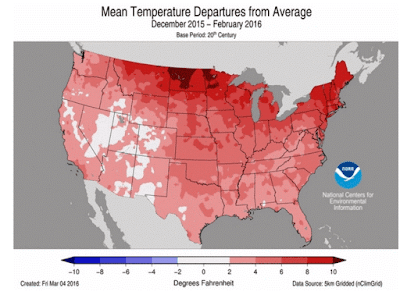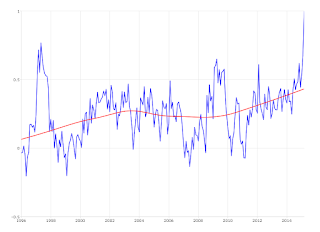A Trek in Polar Bear Country
I just read a Kindle "single", Meltdown: Terror at the Top of the World . It's about a subarctic trek in polar bear country in Northern Canada organized by a couple who has done many of such treks joined by four other backpackers. It ends pretty much right away with one of them severely injured by a polar bear. But that is not what is to be taken away from the story. The real story is what global warming is doing to the bears, to the Arctic, and to other wildlife trying to survive there. Some of what is happening there is like what is happening in our yard. Spring is coming earlier and plants are flowering, but before the bees and flying insects are available for fertilization. The plants and the flying insects are going to have to adapt, change their reproductive cycles, but some may not and will disappear. Just so, things like that are happening the Arctic and subArctic. The polar bears are at the top of a complex food chain that is...




